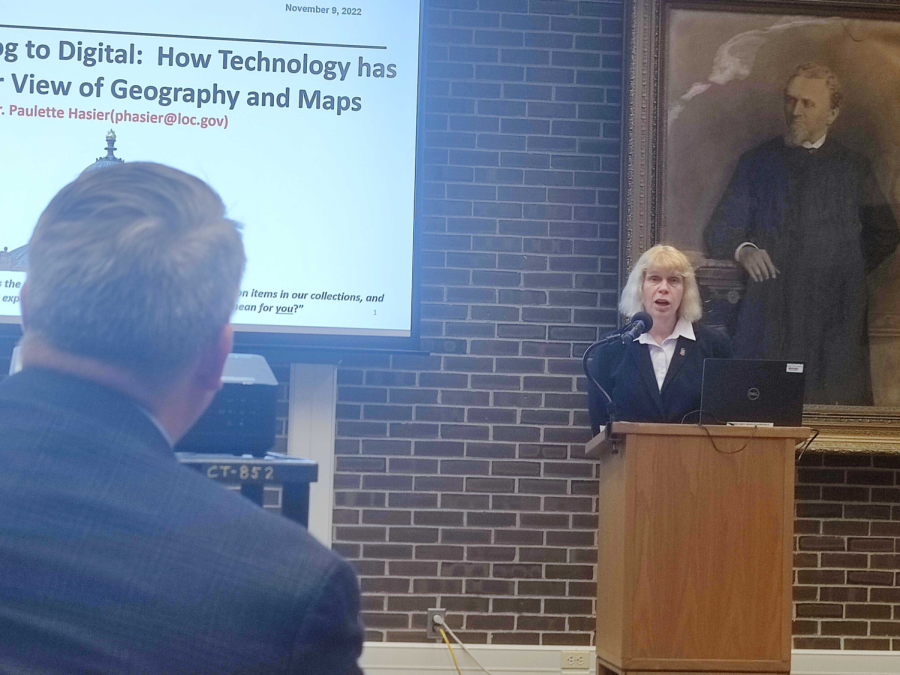NIU alumna to host first talk in ‘Women in STEM’ Speaker Series
Paulette Hasier leads a presentation on “Women in STEM” at the Founders Memorial Library, Nov. 9, 2022.
November 9, 2022
NIU alumna Paulette Hasier, chief of the Maps and Geography Division at the Library of Congress, will host a talk at 5:30 p.m. Wednesday at the Founders Memorial Library in the first-floor gallery.
This event is part of the “Women in STEM” Speaker Series sponsored by the College of Liberal Arts and Sciences (CLAS) and the University Libraries. There will be a reception before Hasier’s talk at 4:30 p.m in the first-floor gallery of the Founders Memorial Library.
“Oftentimes women are underrepresented in STEM fields – other gender minorities as well,” said Fred Barnhart, dean of university libraries at NIU. “But we feel it’s important to celebrate and recognize women who have excelled in STEM.”
According to NIU Today, Hasier earned a bachelor’s degree in history from NIU, a master’s degree in Library Science from the University of North Texas and a Ph.D. in history from the University of Texas at Arlington. NIU’s CLAS honored her in 2020 with a distinguished alumni award.
Hasier has been supporting NIU’s CLAS by sharing online resources for history students, creating engagement opportunities for students at the Library of Congress and providing donations to scholarship funds.
Before she was appointed to her current position at the Library of Congress in 2017, Hasier worked at the Dallas Public Library, U.S. National Geospatial Intelligence Agency and more. Hasier is the first woman and ninth person overall to be named chief of the Maps and Geography Division since its formation in 1897.
“When I started at the Library of Congress nearly six years ago, I was the first chief of the geography division that was a woman,” Hasier said. “It really hit me then that if we are not recognizing our fellow women that are doing these wonderful things in these disciplines that are traditionally dominated by male counterparts, then we’re not really giving our fellow women in these areas the due that they deserve.”
The Maps and Geography division has one of the world’s largest collections of maps in various languages dating from the 14th Century to now; and with Hasier’s work in the division, the library is now working to open its collections to the public.
“I think geography and maps have a lot of opportunities for women in the field. They’re not constrained by a physical location,” Hasier said. “They can do the work and still be recognized for what they do, and I think it’s important because geography and maps basically are the core of your location on the Earth.”







